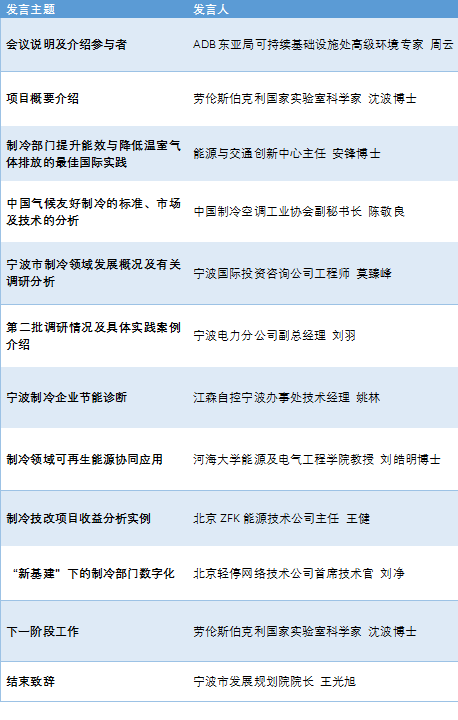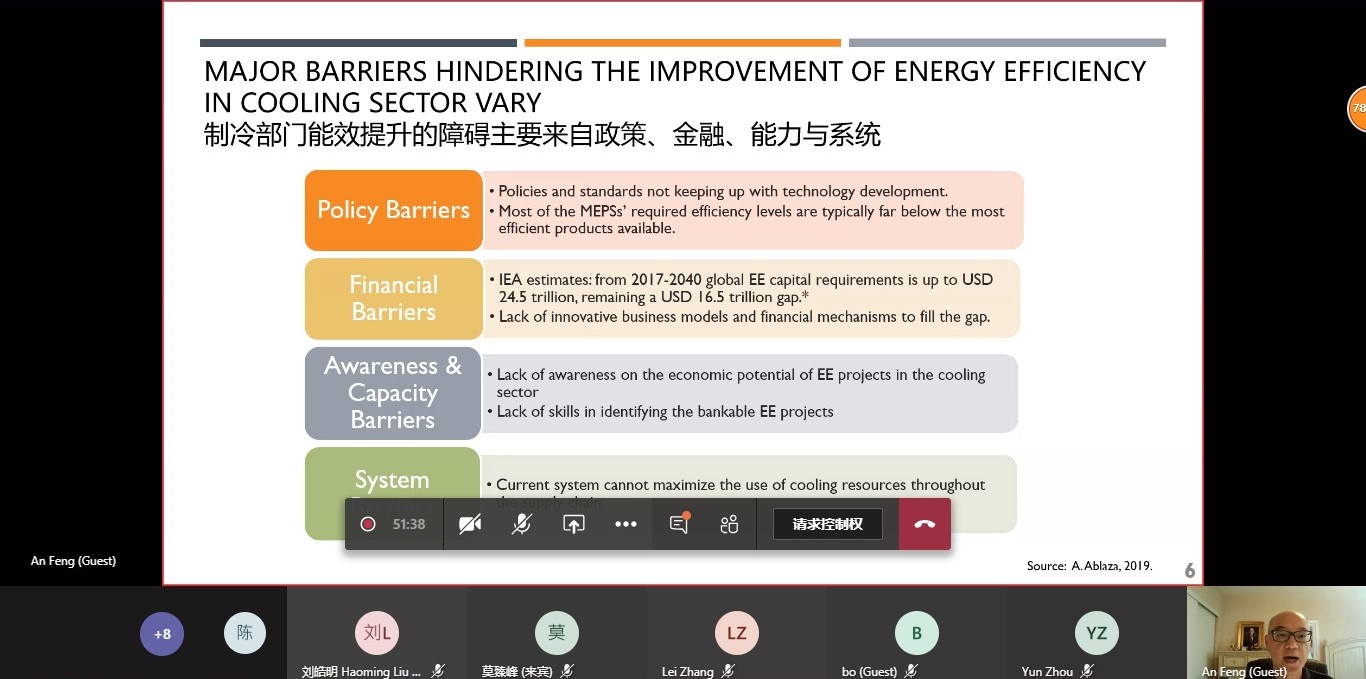|
The session
was chaired by Yun Zhou, Senior Environmental Specialist, Sustainable
Infrastructure Division, East Asia Bureau, Asian Development Bank,Dr. Bo Shen, Scientist,
Lawrence Berkeley National Laboratory, Dr. Feng An, Executive Director of iCET,
Mr Jinliang Chen, Deputy Secretary General of the China Refrigeration and Air
Conditioning Industry Association, and a number of experts from the
refrigeration and power industries presented the latest progress of the
technical assistance project at the meeting and discussed the next step
forward. Mr Guangxu Wang, Director of the Ningbo Institute of Development
Planning, concluded the meeting with a summary of the project's interim results
and offered expectations and suggestions for the project's future development.
The
specific agenda of the meeting was as follows:

This
project, officially launched in September 2019, unites more than ten experts in
the fields of green refrigeration, building energy efficiency and green finance
from home and abroad to carry out technical support with the city of Ningbo as
a pilot, the objective is to help the city of Ningbo improve energy efficiency
in the refrigeration sector, reduce the use of hazardous refrigerants and reduce
greenhouse gas emissions and climate impact through the design and development
of a diversified business model and innovative financial mechanisms. The
project will not only focus on improving the energy efficiency of refrigeration
equipment, but will also make use of internet technology to optimise the
efficiency of the use of refrigeration resources, creating an "internet +
refrigeration" model to achieve systemic efficiency improvements.
At present,
the technical assistance project team has carried out two mapping studies of
the refrigeration equipment and energy consumption of commercial, industrial
and public institutions in Ningbo, covering more than 300 enterprises and
institutions. At the same time, we also selected representative refrigeration
enterprises and projects for energy efficiency diagnosis, did cost-benefit
analysis of some refrigeration technology improvement projects, explored the
synergistic application of refrigeration projects and renewable energy, and
initially proposed digital innovation solutions to improve energy efficiency
and reduce carbon emissions in the refrigeration sector in Ningbo in the
context of the "new infrastructure".

Dr An Feng
presented the international best practice experience of policy and financial mechanisms
to improve energy efficiency and reduce greenhouse gas emissions in the
refrigeration sector, and pointed out that our next priority is to put forward
actionable and implementable policy recommendations, taking into account the
challenges and barriers to the development of green refrigeration in China,
especially in Ningbo.
Mr. Guangxu
Wang, President of the project, concluded by acknowledging the progress and
results achieved at this stage of the project and suggested that we should
consider different refrigeration application scenarios in a comprehensive
manner in the next phase of work and make more targeted policy recommendations
and financing models. At the same time, horizontal communication and
cooperation between experts should be strengthened during the project
implementation.
Ms Yun Zhou
also suggested that the next phase of work should further strengthen horizontal
exchanges and synergies between different technical assistance projects of the
Asian Development Bank to promote the financing and implementation of more
quality green refrigeration projects.
|

